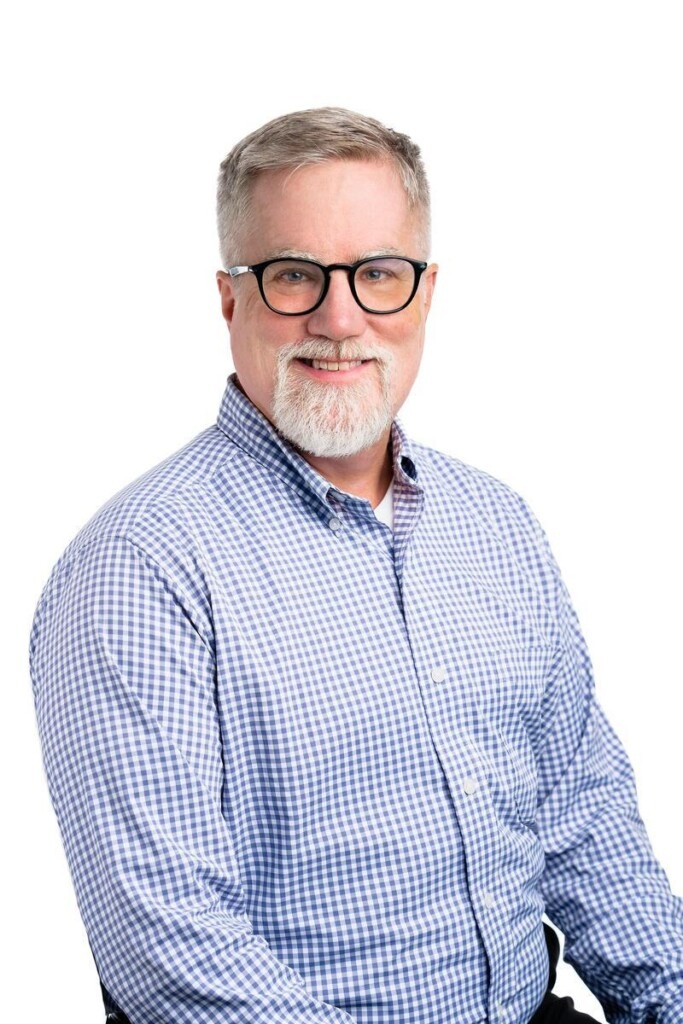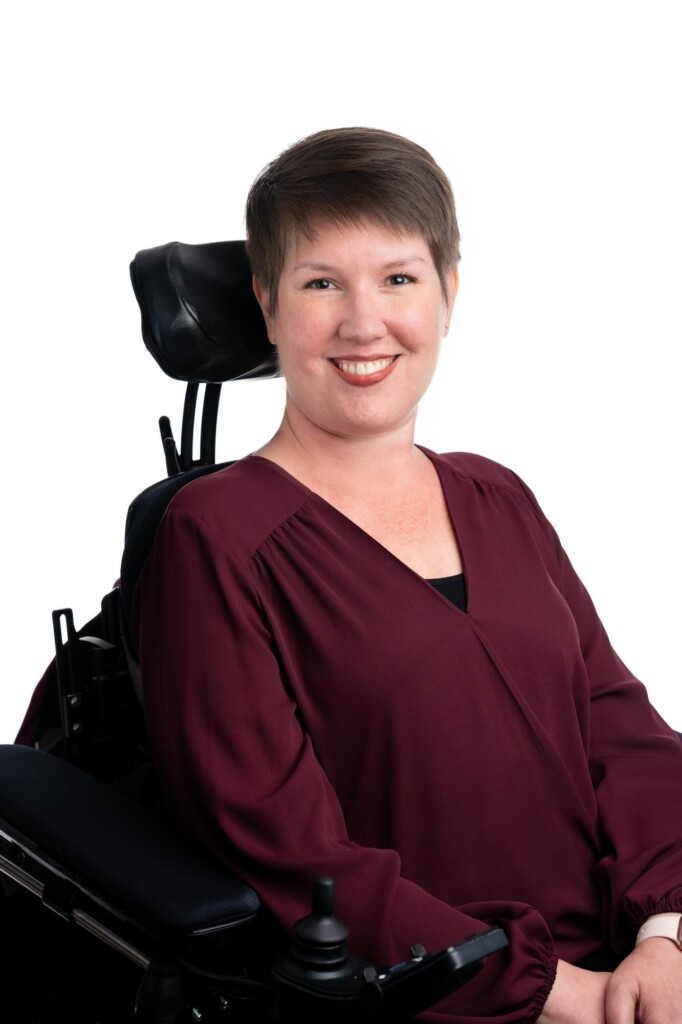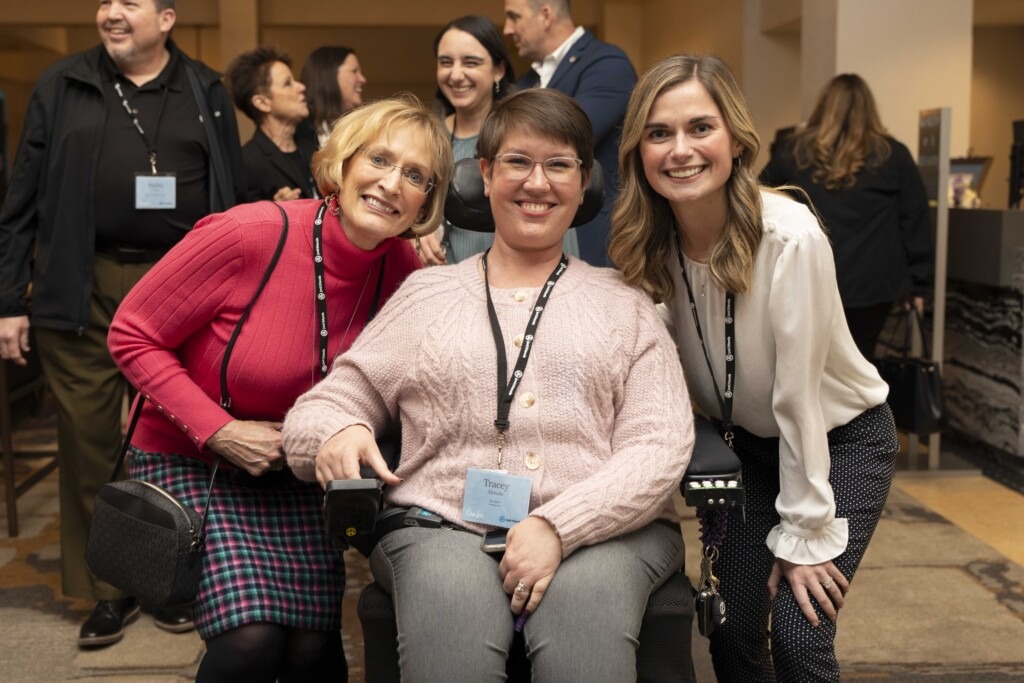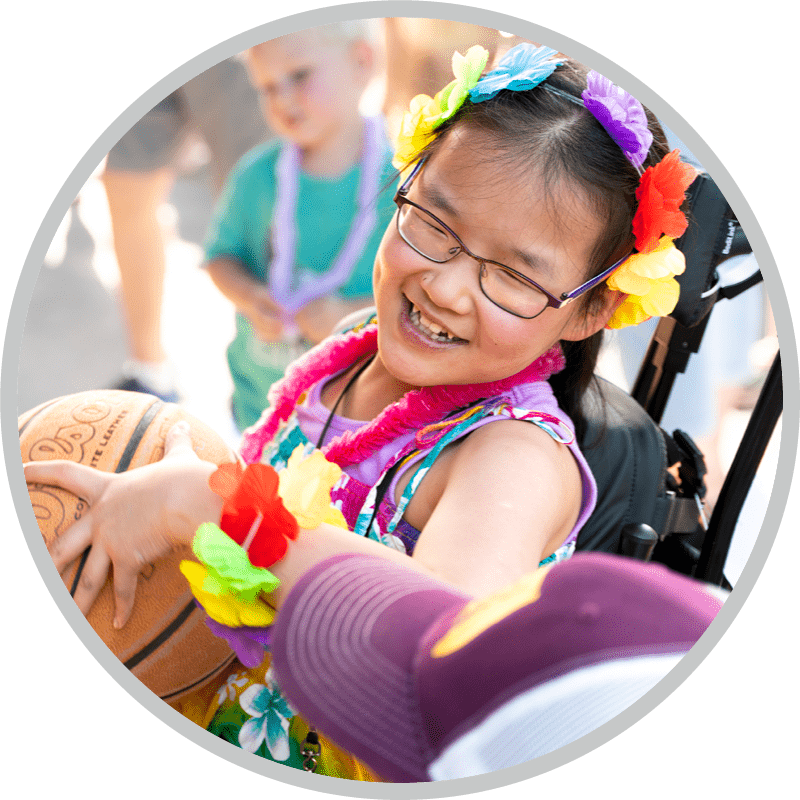Living and Serving with a Disability: Joni and Friends Staff Member Tracey Motoda’s Story


For Tracey, who lives with a disability, working at Joni and Friends is more than a job—it’s an opportunity to share the Gospel! We asked Tracey some questions about herself and her work…
Please introduce yourself and your family.
“I’m Tracey and I have been married to Mike for 16 years in April. We live in Washington State with our small, very special pup. I used to work in social work then God opened the doors of ministry, which was a huge shock to me. I would have never guessed that would be his plan.”
How did you learn about Joni and Friends?
“Funny story! After Mike and I got married, someone said, ‘You guys look like Joni and Ken,’ because my husband is also Japanese American. I didn’t know who Joni and Ken were, so I looked them up and started reading Joni’s books. I read her autobiography and the Joni and Ken book and was totally inspired.
When we moved to California for my husband’s job, we ended up living ten miles from the Joni and Friends headquarters. I applied to volunteer, was a volunteer for one day—and was invited to apply for a job!”
Describe what you do at Joni and Friends.
“I came to Joni and Friends in 2017 and I have worked in the Response Department the whole time. Now I manage the department. It’s an amazing opportunity to minister to people with disabilities around the world.
We like to say it’s where the ministry began because, after Joni authored her book, she and her friends and sisters would sit around the table and write letters to people who reached out to her. It’s important that we continue to connect with those who have been inspired by Joni’s story.”

Tracey, please describe your disability.
“I was born with a condition called spinal muscular atrophy. When I started walking, my parents noticed that I was falling strangely. I wasn’t trying to catch myself. So they took me to my doctor, who didn’t really know what was going on. He sent me for testing at Seattle Children’s Hospital where, at 18 months old, I got my diagnosis.
Spinal muscular atrophy is a progressive neuromuscular disease that looks similar to amyotrophic lateral sclerosis (ALS). The progression is slower, and you’re diagnosed younger, but the trajectory long-term is very similar. I lose my muscles; my voluntary muscles atrophy.
At this point, I’ve used a power wheelchair for 40 years, and I can only move my arms from my elbows to my hands. I have pretty good neck and head control, but I can’t move any other parts of my body without help.”
What opportunities does your disability create?
“Living with disability opens doors to people you couldn’t reach otherwise. There is something disarming about having a disability. But there are also people who are uncomfortable around folks with disabilities.”
What is the most discouraging thing about life with disability?
“When people don’t see me as whole… Sometimes it’s a preconceived notion of my capacities. For example, the assumption that I want to be healed, and out of this wheelchair, has been a discouragement to me. I can’t tell you how many times I’ve been approached by strangers at the grocery store or at the mall who want to pray for my healing. In their minds, I am not whole until I’m healed.”
How has your faith shaped your life?
“The messaging that my parents gave me about my disability was that God does not make a mistake. They said, ‘He’s got a good purpose for this, and you’re going to have a lot of fun figuring it out.’ That’s how my parents raised me, giving me freedom to see how God would use my disability. That was a fundamental part of my faith journey that has shaped my life.”
Are you part of a church community?
“We’re involved in a great church community. For the church, it’s never been about my disability. It’s about, ‘What do you guys like to do? What are you interested in? How can we make sure whatever you’d like to do is accessible?’
After I was sick recently, the pastor asked how they can make our church safe for me, knowing that a respiratory virus can be very dangerous… this spoke volumes about their empathy.”
Is there anything else you’d like to add?
“The most important thing is to treat all people as individuals created in the image of God with unique giftings and abilities. So honor God by seeing people’s abilities and helping to develop them.”

Support Joni and Friends
Your gift will bring encouragement to people living with disability, at home and worldwide!





